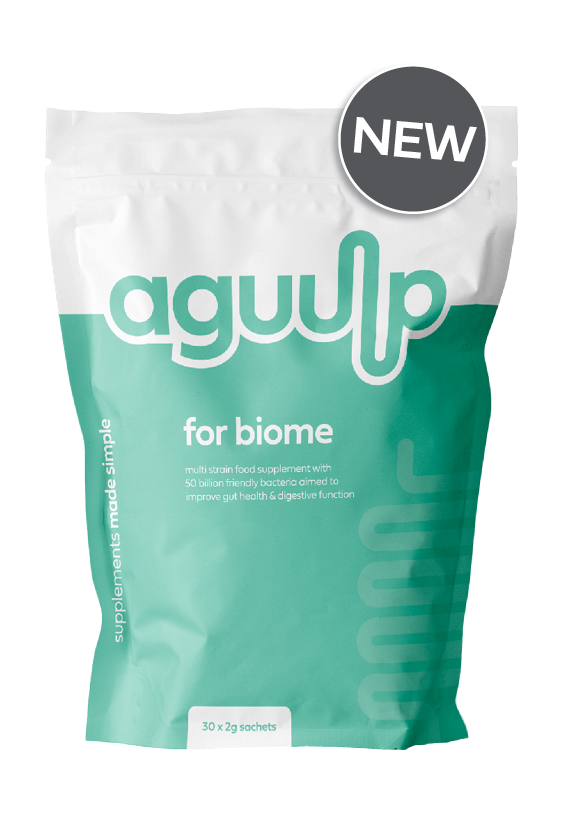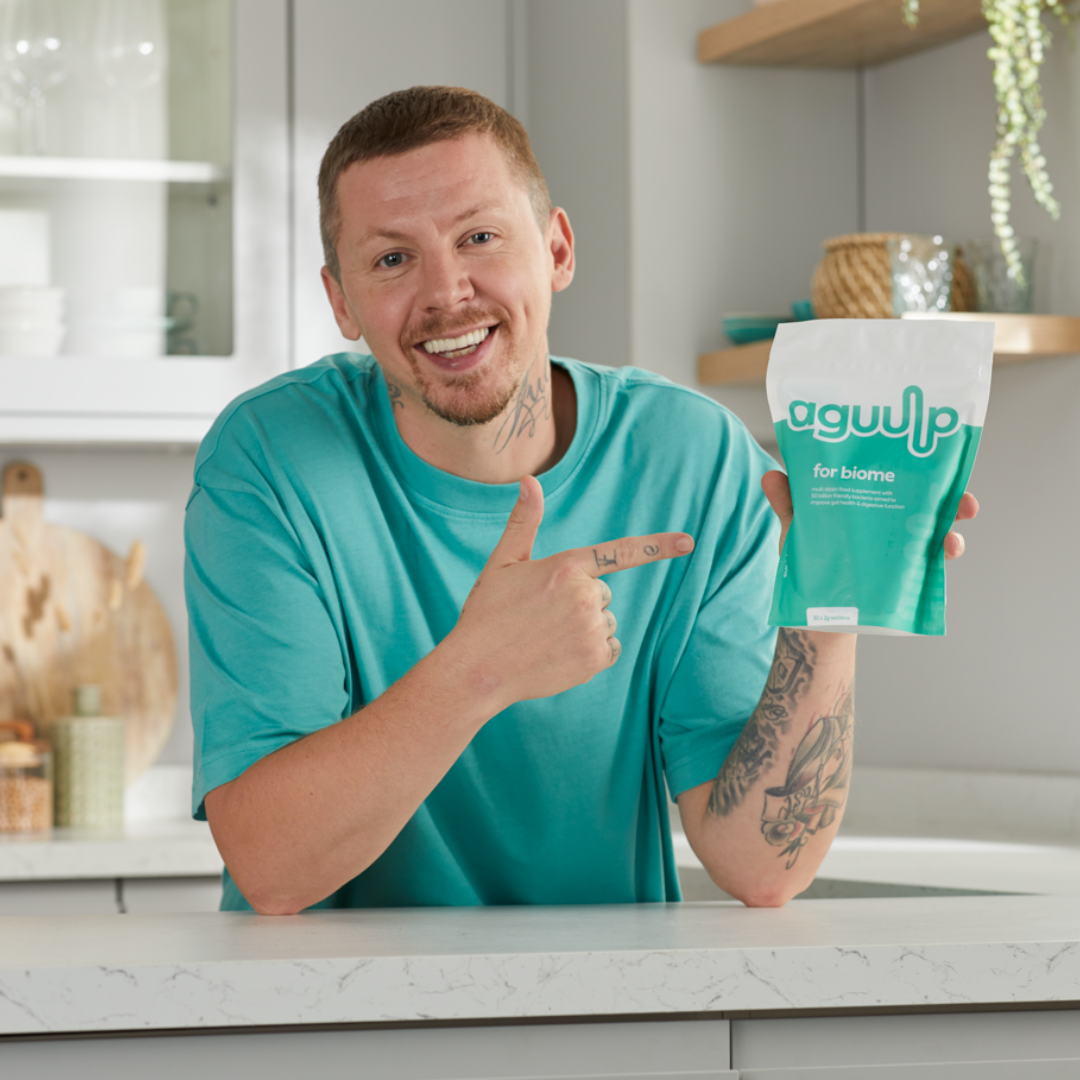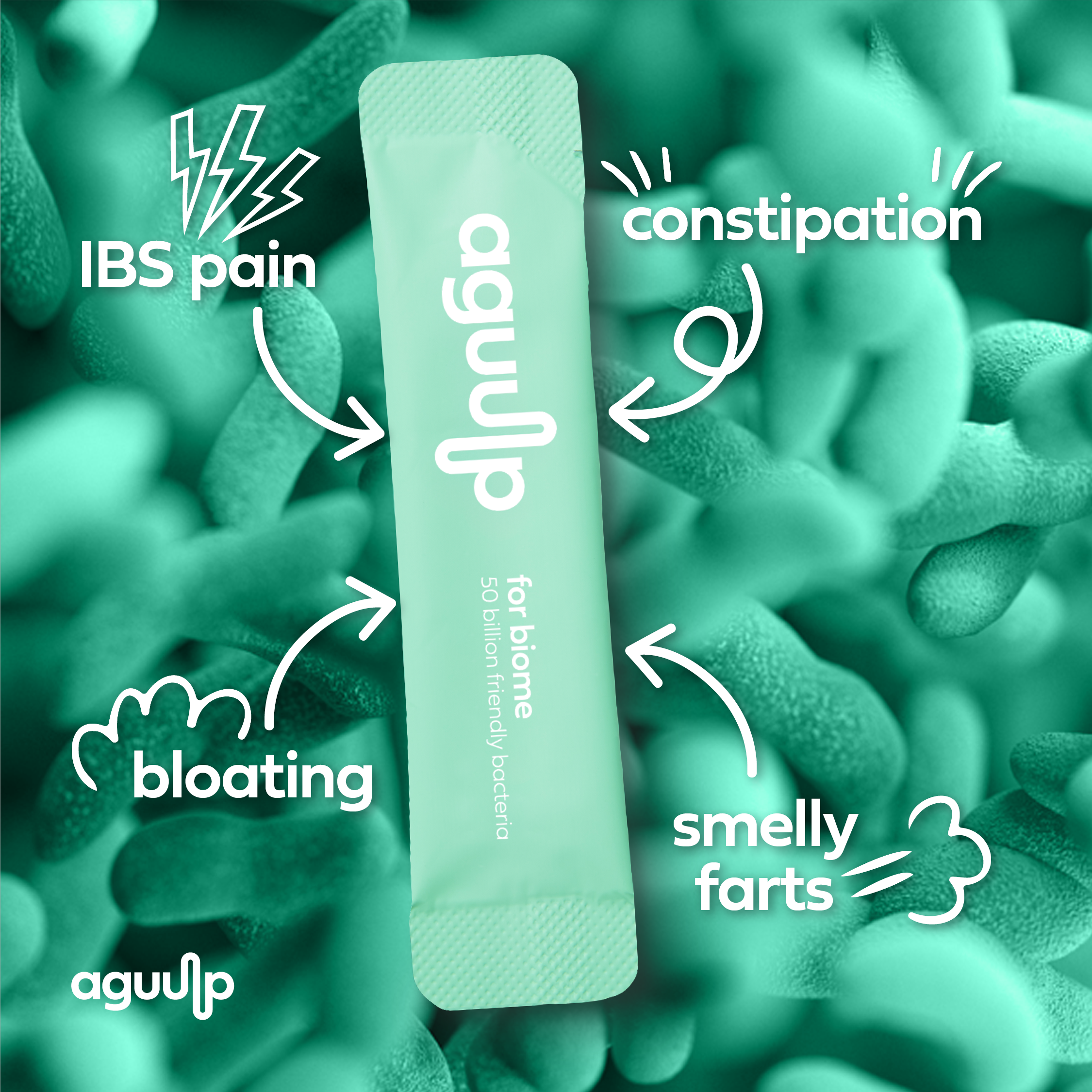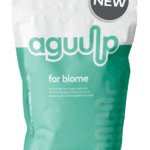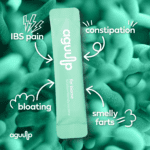Problems with smelly farts? We recommend... gut probiotic
supporting your gut health and helping to reduce the presence of flatulence, one sachet at a time.
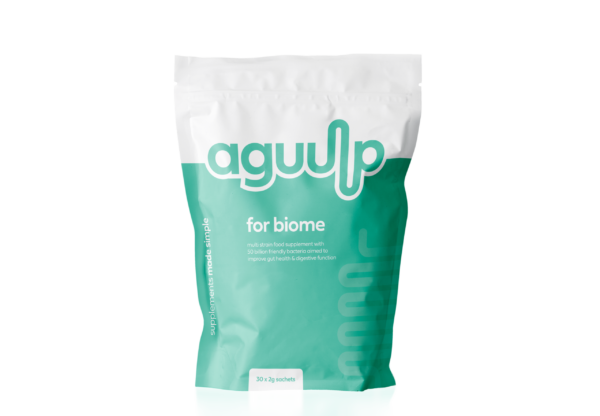
aguulp for biome

Problem with smelly farts?
Smelly farts is usually caused by the break-down of sulphur containing compounds in our gut which contributes to sulphur -containing gases like hydrogen sulphide. Foods that can contribute to sulphurous wind include animal proteins (such as meat, protein powders and eggs), plant foods such as broccoli, cabbage, cauliflower, garlic and onions and beverages such as wine and beer. Research suggests that high protein intake can be particularly problematic, in terms of smelly wind.
But don’t worry, all is not lost – aguulp is here to help.
how aguulp may help with smelly farts*
specifically chosen bacterial strains in high quantities to ensure it improves symptoms such as smelly farts
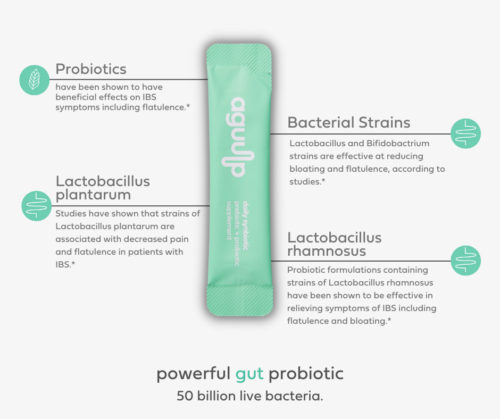
* The MHRA/FSA only evaluates foods and drugs, not supplements like these products. This product is not intended to diagnose, treat, cure or prevent any disease.
** These are real reviews from customers, and they show what is possible with aguulp, however, we can’t guarantee results with any aguulp products.
aguulp for biome probiotic supplement
aguulp for biome is a probiotic supplement with 50 billion friendly bacteria and prebiotics, aiming to help rebuild your gut health.

your new health journey starts today.
It takes guts to change your lifestyle – and we believe in you.
get startedit's what's inside that counts
probiotics

10 bacterial strains

Lactobacillus plantarum

Lactobacillus rhamnosus

how can it help my constipation?
- Probiotics have been shown to have beneficial effects on IBS symptoms including flatulence
- Lactobacillus and Bifidobactrium strains are effective at reducing bloating and flatulence, according to studies
- Studies have shown that strains of Lactobacillus plantarum are associated with decreased pain and flatulence in patients with IBS
- Probiotic formulations containing strains of Lactobacillus rhamnosus have been shown to be effective in relieving symptoms of IBS including flatulence and bloating
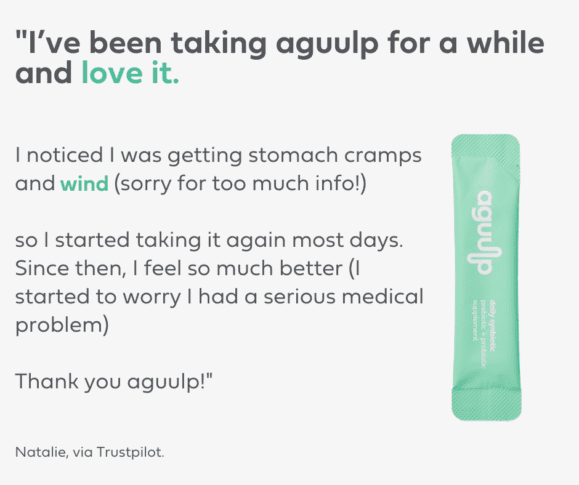
don’t just take our word for it…
aguulp products have helped people reduce their flatulence/wind**.
hear from other happy guts
So, what’s happening in the body to produce smelly farts?
Bacteria in the gut produce gas as a by-product of the breakdown (fermentation) of food molecules. Certain foods contain high levels of sulphur which when converted into hydrogen sulphide by the bacteria in the gut causes foul smelling gas. This is then expelled as air (or as we know it- a fart, and a smelly one at that!).
top tips for reducing bloating
- Eat a varied diet to encourage a more diverse gut microbiome which can reduce the bad bacteria that can cause foul smelling gas.
- Taking an external supply of pre and probiotics to reinoculate and replenish the gut with good bacteria, and taken in this way can help to rectify any imbalance of good versus bacteria gut bacteria known as dysbiosis.
- Stick to the recommended daily protein intakes (according weight, size and activity level) and reduce if necessary. Further info can be found @ Protein – British Nutrition Foundation)
* The MHRA/FSA only evaluates foods and drugs, not supplements like these products. This product is not intended to diagnose, treat, cure or prevent any disease.
** These are real reviews from customers, and they show what is possible with aguulp, however, we can’t guarantee results with any aguulp products.
our research sources
at aguulp, it’s important to us that any research and findings we use are sourced correctly and from appropriate sourcing. We’ve done the hard work so you don’t have to, but if you want some ‘light reading’, view our sources here:
- Ford AC, Quigley EM, Lacy BE, Lembo AJ, Saito YA, Schiller LR, Soffer EE, Spiegel BM, Moayyedi P. Efficacy of prebiotics, probiotics, and synbiotics in irritable bowel syndrome and chronic idiopathic constipation: systematic review and meta-analysis. Am J Gastroenterol. 2014 Oct;109(10):1547-61; quiz 1546, 1562. doi: 10.1038/ajg.2014.202. Epub 2014 Jul 29. PMID: 25070051.
- Di Stefano M, Miceli E, Armellini E, Missanelli A, Corazza GR. Probiotics and functional abdominal bloating. J Clin Gastroenterol. 2004;38(6 suppl):S102-S1033.
- Kajander K, Hatakka K, Poussa T, Färkkilä M, Korpela R. A probiotic mixture alleviates symptoms in irritable bowel syndrome patients: a controlled 6-month intervention. Aliment Pharmacol Ther. 2005;22(5):387-394.
- Kim HJ, Vazquez Roque MI, Camilleri M, Stephens D, Burton DD, Baxter K, Thomforde G, Zinsmeister AR. A randomized controlled trial of a probiotic combination VSL# 3 and placebo in irritable bowel syndrome with bloating. Neurogastroenterol Motil. 2005 Oct;17(5):687-96. doi: 10.1111/j.1365-2982.2005.00695.x. PMID: 16185307.
- Nobaek S, Johansson ML, Molin G, Ahrné S, Jeppsson B. Alteration of intestinal microflora is associated with reduction in abdominal bloating and pain in patients with irritable bowel syndrome. Am J Gastroenterol. 2000 May;95(5):1231-8. doi: 10.1111/j.1572-0241.2000.02015.x. PMID: 10811333.
- Kajander K, Hatakka K, Poussa T, Färkkilä M, Korpela R. A probiotic mixture alleviates symptoms in irritable bowel syndrome patients: a controlled 6-month intervention. Aliment Pharmacol Ther. 2005 Sep 1;22(5):387-94. doi: 10.1111/j.1365-2036.2005.02579.x. PMID: 16128676.
